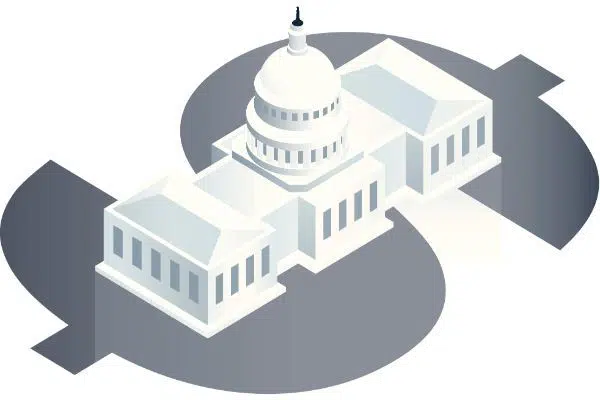Tax exemption is one of the keystones of church law, with its foundations in the First Amendment to the US Constitution. Yet federal tax law gives the IRS some latitude in determining what activities are permissible for a tax exempt entity when it comes to lobbying.
This is not quite a cut-and-dry issue and there are some intricacies involved under the law and applicable regulations. But the main point is that churches are allowed to engage in an insubstantial amount of lobbying
The IRS considers lobbying to include actions supporting or opposing bills, acts, resolutions, and so forth, taken by a legislating body—such as the US Congress, as well as any state legislature or any local governing body—or by the public via referendum. If a church contacts, or urges the citizenry to contact, anyone involved in a legislating body with the purpose of proposing, supporting, or opposing legislation—and even if the church merely advocates for either adopting or rejecting the given legislation—the IRS will consider the church to have engaged in an attempt to influence legislation.
The IRS uses the “substantial part” test to determine how much lobbying a church may do. For this test the IRS looks at the amount of time and expenditures the church devotes to the attempts to influence legislation (whether by employees or volunteers). If this is considered to be a substantial part of its overall activities, the church may face an excise tax or additional penalties. There is no clear-cut definition of what is an “insubstantial part” of a church’s activities. The IRS has used different percentages (5% in one case) to define what is an insubstantial part.
Churches may be hesitant to engage in an activity that would constitute lobbying. However, when done appropriately, a church can have a powerful voice on legislation that impacts or intersects with the churches’ religious convictions. Churches have been at the forefront of many legislative initiatives through the years of American history and they should not stop doing so.
If you have questions about a particular activity your church wants to do and whether it constitutes lobbying, , Provident Law’s church and nonprofit attorneys are here to help. We recognize how essential these organizations are to society, how important it is that they maintain tax exempt status for their ongoing existence. We stand ready to counsel and serve by providing broad transactional and general counsel services. Contact us to learn more.


